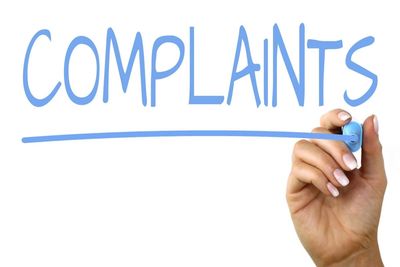Complaints

This procedure is for use for complaints against the school, a member of staff or the governing body. There are separate arrangements, laid down by law to cover the following:
- Complaints against the curriculum, collective worship and religious education.
- Appeals against admissions.
- Appeals against exclusions.
- Appeals about assessments and statements of special educational needs (to 2018) and against Education Health Care Plans.
For further guidance on any of the above please contact the Executive Headteacher
Stage One: Complaint Heard by Staff Member/Executive Headteacher/Chair of Governors
It is in everyone’s interest that complaints are resolved at the earliest possible stage. The experience of the first contact between the complainant and the school can be crucial in determining whether the complaint will escalate. To that end, if staff are made aware of the procedures, they know what to do when they receive a complaint.
In the first instance the complaint should be discussed between the person making the complaint and the member of staff involved. If a complainant indicates that he/she would have difficulty discussing a complaint with that particular member of staff he/she should be referred to another staff member. Where the complaint concerns the Executive Headteacher, or a governor, the complainant should be referred to the chair of governors. Similarly if a member of staff/Principal/chair of governors feels too compromised to deal with a complaint it should be referred to another member of staff or another governor. The ability to consider the complaint objectively and impartially is crucial.
If a complainant first approaches a governor, he/she should be referred to the appropriate person i.e. the member of staff concerned or the chair of the School Advisory Group.
Governors should not act unilaterally on an individual complaint outside the formal procedure or be involved at the early stages in case they are needed to sit on a committee at a later stage of the procedure.
It is hoped the majority of complaints can be resolved at this stage and to this end it may be useful to involve the Client Relations service, within the Children’s Services Directorate of the Local Authority, who are available to advise parents on the complaints process and may on occasion help to facilitate contact with the school.
Stage Two: Formal Consideration of Complaint
If the complainant is dissatisfied with the way the complaint has been handled at stage one and wishes to pursue their initial complaint, the Executive Headteacher/chair of governors may delegate the task of investigating the complaint to another staff member, or to another governor. The Executive Headteacher/chair of governors may also, in exceptional circumstances commission an investigating officer report to be undertaken by an external consultant. However the decision on the action to be taken rests with the Executive Headteacher/chair of governors. Once the relevant facts have been established the Executive Headteacher/chair of governors should relay the decision, and the reason for the decision, in writing to the complainant as soon as possible.
Stage Three: Complaint Heard by Governing Bodies Complaints Committee
If the complainant is still dissatisfied with the outcome he/she should write to the Executive Headteacher/Chair of Governors giving details of the complaint within ten school days of receipt of the decision letter. The chair or another nominated governor will convene a governing body complaints committee, if they consider it appropriate, after considering the report of the investigating officer. The committee will consist of a minimum of three governors with delegated powers. The committee will be appointed by the chair of governors with the chair of the committee being appointed when they meet. The complaints committee will take a decision as to any action to be taken in response to the complaint. For example they may choose to:
- Convene a hearing at which the complainant will be invited to put forward their case. This should be held within 20 working days of the decision to hold a hearing;
- Dismiss the complaint in whole or in part;
- Uphold the complaint in whole or in part;
- Recommend changes to the school’s systems or procedures to ensure that problems of a similar nature do not recur.
In reaching a decision the committee may take the advice of such bodies as they see fit, in particular the Local Authority. If it is decided that it is appropriate to hold a hearing, the clerk of the complaints committee will inform both parties in writing of the decision of the committee within five school days. If having followed all three of the above stages the complainant is still dissatisfied with the decision of the complaints committee, the complainant is dissatisfied with the outcome, or if there are reasons why they cannot use that procedure – for example, they feel their complaint has not been or will not be given a fair consideration due to a conflict of interest – they can forward their complaint to the Department for Education, using the online school complaints form.
Making a complaint to the Department should only happen once all other routes have been followed.
The exception to this may be where there is a child protection concern, or where a child is missing education.
More information about making a complaint can be found on the DfE website: www.gov.uk/complain-about-school
If a complaint has been made by a number of parents and it is about whole school issues they may, at any stage of the procedure, ask the Chief Inspector of schools to investigate their complaint. The Chief Inspector may or may not require the school’s complaints procedure to be exhausted before he decides whether or not to investigate.
